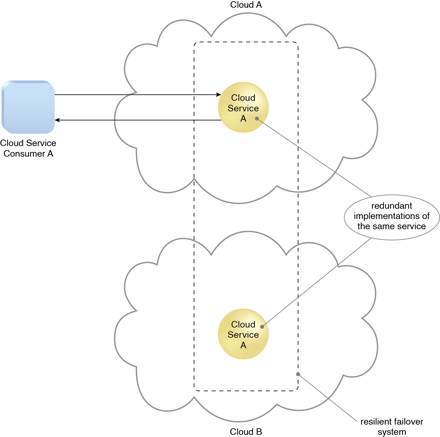Cloud Computing Patterns, Mechanisms > Basics > Cloud Characteristics > Resiliency
Resiliency
Resilient computing is a form of failover that distributes redundant implementations of IT resources across physical locations. IT resources can be pre-configured so that if one becomes deficient, processing is automatically handed over to another redundant implementation. Within cloud computing, the characteristic of resiliency can refer to redundant IT resources within the same cloud (but in different physical locations) or across multiple clouds. Cloud consumers can increase both the reliability and availability of their applications by leveraging the resiliency of cloud-based IT resources (Figure 1).

Figure 1 – A resilient system in which Cloud B hosts a redundant implementation of Cloud Service A to provide failover in case Cloud Service A on Cloud A becomes unavailable.

